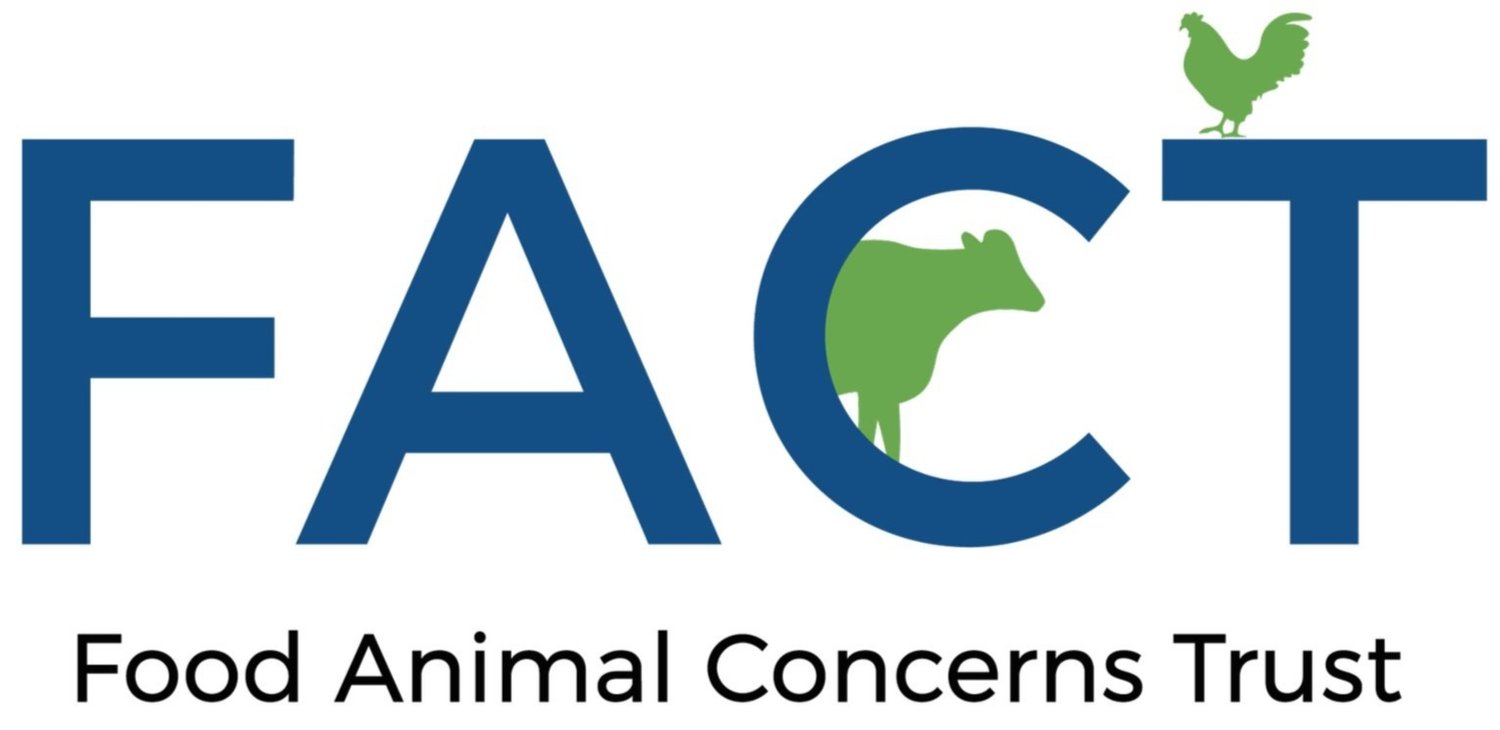Reporting from Washington DC: The Sustainable Agriculture and Food Systems Funders (SAFSF) Forum
By Harry Rhodes, Executive Director
Harry Rhodes and Steve Roach at the Smithsonian Museum of the American Indian
Spending a few days working in Washington DC, meeting with colleagues as well as government officials and members of Congress on Capitol Hill is always exciting and impactful.
Steve Roach, FACT’s Safe & Healthy Food Program Director and I just completed three and a half long days at the Sustainable Agriculture and Food Systems Funders (SAFSF) Forum. FACT is a member of SAFSF, whose mission is to “amplify the impact of philanthropic and investment communities in support of just and sustainable food and agriculture systems”. FACT’s regranting program, Fund-a-Farmer Grants, provides essential grants to humane farmers every year.
Steve and Harry with colleagues Haven Leeming from Builders Initiative and Michael Roberts from the McKnight Foundation
During the forum we met with many colleagues throughout the country talking about ways to create a more equitable, just food system for all. There were meetings with USDA representatives, a plenary with members of the USDA Equity Commission, and many more.
Two of the highlights for us were meeting with Congressional offices on Capitol Hill and hosting a workshop on The Interaction of Climate Change, Animal Agriculture and Indigenous Farming Systems.
FACT’s Climate Change Position Paper served as the basis for the conversation we led on the important connections between animal agriculture and climate change, and how humane farming can be a positive contribution to mitigating and adapting to climate change. We leaned on the history and experience of thousands of years old indigenous communities agricultural and cultural practices. A-dae Romero-Briones, FACT Board member and Director of Programs with the First Nations Development Institute, contributed to our paper and we moderated the workshop together.
I’d like to thank Hila Shamon from Smithsonian Conservation Biology Institute's Conservation Ecology Center in Montana and Sam Laroque CAO/Director Turtle Mountain Band of Chippewa Indians Belcourt, North Dakota for joining us and sharing their knowledge with everyone who participated in this workshop.
Participants learned from our experts and participated in the conversation.
It was a tiring, but valuable time being a part of this Forum. We’re already looking forward to the next SAFSF Forum, and to working with partners throughout the year.
Harry and A-dae moderating workshop
A-dae telling a story at the workshop




